
It’s hard to express a smile when a thin blue paper mask covers your mouth and nose. My Spanish, like my hair, is sparse. And the hair that falls onto my keyboard today is short, less than 2cm long, as if a grey and white calico cat had briefly graced my laptop with her presence, before sighing in displeasure at the paucity of human vowels and slinking off.
So I try to tell Katty with my eyes alone how grateful I am for what she does to keep the germs and the bacteria at bay. I hope that my stumbling gracias, and the extra crinkles around the edges of my eyes, will make that clear.
The thoroughness with which she disinfects my bedroom floor, and the shower, and now the television and the remote control, before moving on to the kitchen with her ever-present mop touches me. The way Katty cleans is beautiful. I know it is her job and that she is paid to do this, but she does it with such ineffable care, the same care that Joy puts into being a nurse. It isn’t simply what she does. It is a part of who she is.
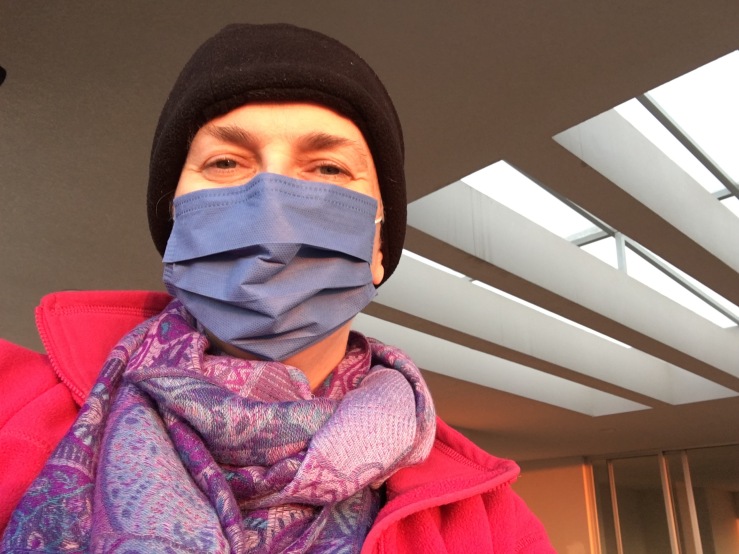
Though Katty’s bleach makes me cough, and coughing hurts my tender bottom. But I forgive her for that, for she is one of the many things protecting me against infection as I lie on the couch today and accept my nadir.
Or at least, I would like to. Yet I have reached a new stage in this process of becoming. This patient is feeling impatient. When will my zenith come? And is it anything like a zephyr? I don’t think the wind howling like a banshee around Inspiralta today is a gentle westerly breeze. It sounds much like the north wind, threatening my sunny, sleep-starved reverie.
I awoke last night with ferocious regularity, after reading myself to sleep at 11pm with Murakami and his “Hard Boiled Wonderland and the End of the World”.
Mainly because Atul Gawande on Mortality felt slightly too close to my missing bones (although well worth a read – we don’t think about the possibility of death enough while we are still alive – really, we don’t) and I had already finished A A Gill’s “Pour me, a Life”.
While A A Gill’s final book is beautiful, and brilliantly written, we all know that it does not end happily ever after but with mortality’s gaze held, returned and finally accepted, and Death the unwelcome early dinner guest at the door, long expected but come far too soon.
I have higher hopes for Murakami. As usual, his hero and heroines have their mettle tested in their odyssey through a nightmarish other-worldy hell and back, be that here inside our hero’s split consciousness, or deep inside a well, or looking for your wife’s lost cat, or at the end of the world, before surviving to make eccentric Japanese love in a small white flat and later eating well and drinking beer cold from the fridge, and perhaps smoking a cigarette while listening to jazz. The hero almost always does the cooking. Does Murakami cook, I wonder? His heroes are almost as obsessed with food as me.

Though they’re rarely as obsessed with sleep. Sleep is my obsession.
At midnight, I awoke. And at 0200, and at 0400.
And then at 0558, according to the baleful red eye of the digital clock that glares at me throughout the night.
Finally, at 0613, I give up on sleep and make a cup of hot tea with milk and sugar and bring it back to bed, snuggling up with Murakami and enjoying every twist.
The very best thing about having MS is that you can read books again and again and again, and only very rarely remember correctly what happens in the end. It must be a bit like childbirth, though without the (hoped for) happy outcome.
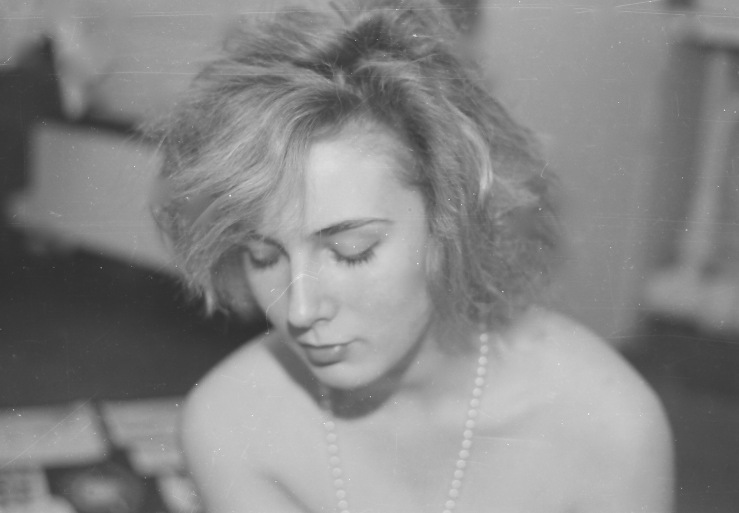
I have tried hard over the years to think of MS as a gift. To re-frame the illness, as the jargon has it. To try to see it as a blessing that has allowed me to travel to and live awhile in another land, the Kingdom of the Sick, just as I once went to live in Germany and tried to learn the language fluently for seven full years, or to France for the four years during which the French occasionally let me mangle their vowels without wincing, or even the three years spent living and working in Russia, where the Cyrillic alphabet would regularly flounce away from me without warning during my language lessons, like a disappointed Russian girlfriend flicking her long red hair and flaunting her Louis Vuitton handbag as she does that jello-on-springs walk in perilously high heels across the icy Moscow pavements but never falls.
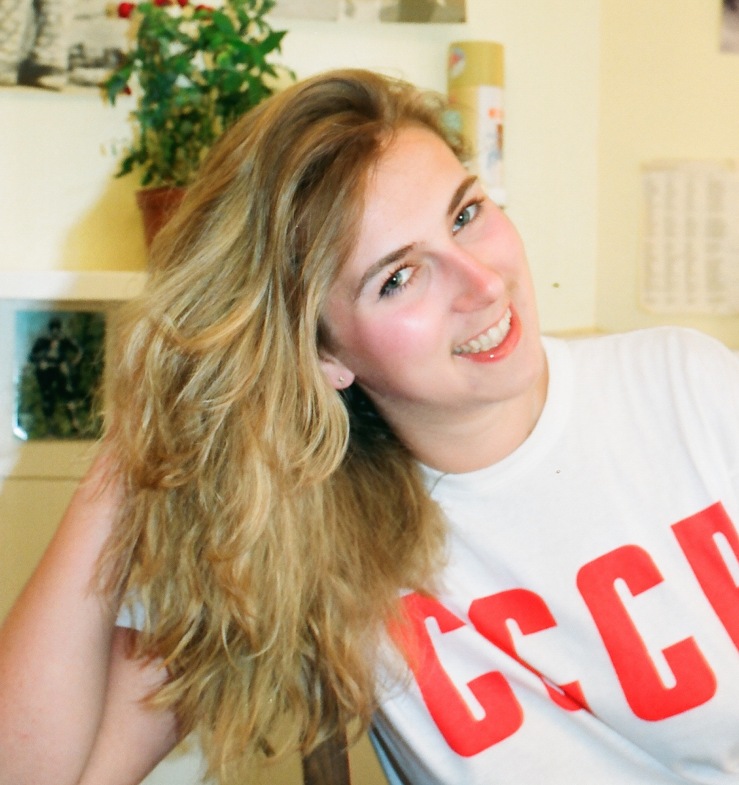
I did manage to learn the alphabet, and enough Russian to order food and taxis, and just enough to ask in interviews in Chechnya and Ingushetia whether the Russian soldiers had first raped or buggered your daughter before they murdered her.
That was the fate of Kheda Kungayeva, a young Chechen girl, who caught the eye of the wrong man, a Russian colonel. That is a longer story for another day, but still, her fate and her family’s fortitude stick with me even tonight, here in the calm of the flat in Mexico, for I have spent the afternoon asleep on the couch, and Joy has magically, quietly re-appeared.
Cyrillic itself of course was formalised by the 9th century Byzantine theologian and missionary St. Cyril and his brother Methodius, clearly a good man to have onside while creating an alphabet. The idea was to be able more easily translate Greek religious texts into Slavic. Nice one, both of you.
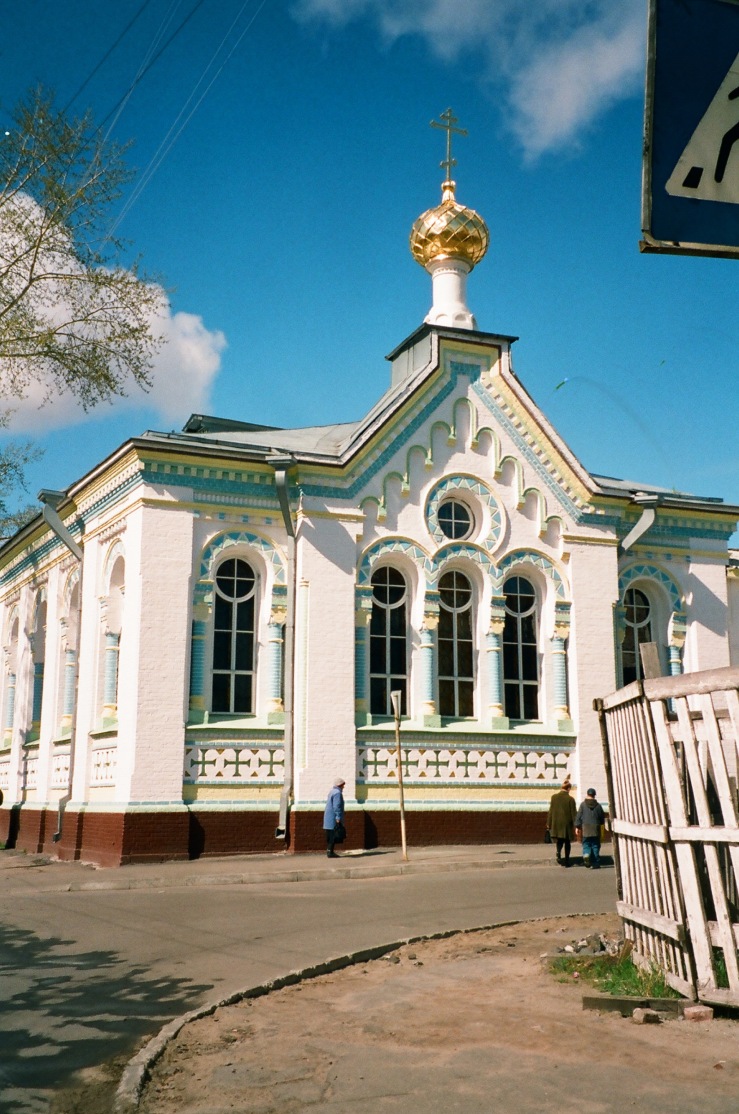
And the contemporary Russian alphabet, if I remember rightly, has a beautifully symmetrical number of letters, 33, two strong-man moustaches up-ended side by side, flexing their muscles. President Putin must be delighted.
But within Europe itself, something that began with the wish to unite and spread learning and culture (and religion) has ended up dividing us – yet again. As religious, cultural and ethnic divides were not enough for frail humanity, we even divide up along alphabetical lines. My B is a V. Therefore my B is better than yours. My Orthodoxy is better than your Orthodoxy, or my Catholicism. And which Patriarch would you like? Take your pick. And do you face east or west? You have to choose. Are you Christian or Muslim or Jew? What sort?

But why? Can’t we face both ways, or mix it all up, as the Byzantine empire itself once did, until the Ottoman Army stormed Constantinople. Please note: Istanbul, not Constantinople – and if you need cheering up today, just watch They Might be Giants at:
https://www.youtube.com/watch?v=vsQrKZcYtqg
On May 29, 1453 Mehmed triumphantly entered the Hagia Sophia, that still awe-inspiring building in Istanbul (not Constantinople) first a Greek Orthodox Christian patriarchal Basilica, then an imperial mosque, and today, still, just, a museum. Emperor Constantine XI died in battle that fateful day, and the decline and fall of the Byzantine Empire was complete.
We filmed in Istanbul not long ago, with Christians who hid their faces and their names, scared or already certain they would be ostracised at work and elsewhere for their religion. How can this be our world six centuries on?
Such things hinge on such small (it seems at the time) decisions. In Russia, in 1919, after the Revolution, some suggested that to be truly modern, the Cyrillic alphabet should go, to be replaced with the Latin, resulting in harmony from sea to shining sea across the whole European land mass, from Vladivostock to Ventry, not to mention from Minsk to Pinsk, where my natural maternal grandmother grew up.

Actually, that grandmother, Anna Niedzwiecki grew up in the village of Stetycrevow but my keyboard won’t do the right vowels. Hers was an idyllic Polish Catholic childhood, growing up in a small village surrounded by silver birches, in a little wooden house amid the Pripyet marshes.
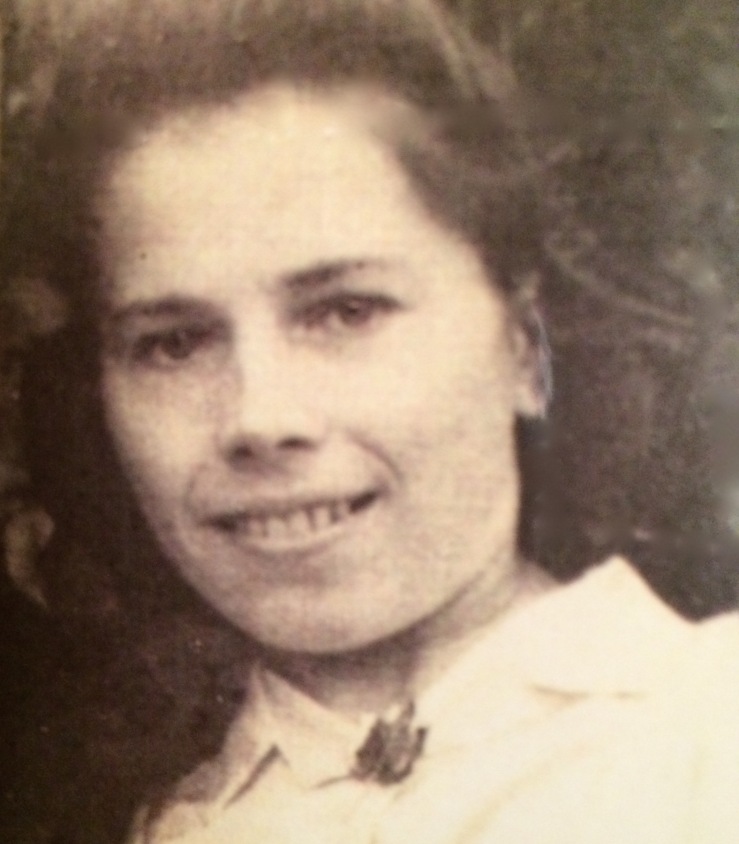
That was before the Nazis came to take her away as slave labour to a farm in Hamburg. Anna was one of the luckier ones. She lived to tell the tale, and bear my natural mother and aunt in a tented refugee camp in Germany in the 1940s, in the self-same town, Braunschweig, from which I used to catch the British Military Train to Berlin in the 1990s for my holidays from boarding school.
Back to Anna, though. Although the girls in her village and many others were taken away to provide the unpaid workforce for German or German-occupied farms and factories, most were not (intentionally) killed.
But in the nearby town of Pinsk, where she and her family would go as an occasional treat, the population in the 1930s was some thirty thousand people, the vast majority – probably 90 per cent – Jewish.
After the Nazis came, killing 10,000 people in one day after they’d been rounded up in the Pinsk ghetto, the town was a lot less Jewish, and a very different city. Although without Pinsk, there would have been no sky-blue coat for Melania Trump to wear for the inauguration of The Donald in the US on Friday.
For the parents of Ralph Lauren, born Ralph Lifshitz, were Ashkenazi Jews from Pinsk, Frieda and Frank Lifshitz. Frank had been an artist and a house painter there, but they had the inspired idea of leaving, so young Ralph was born in the Bronx in New York City in 1939, well away from the massacre there of 1942. Without Frieda and Frank’s foresight or the luck they made themselves, no sky-blue coat at all.
And of course, Pinsk was also the birthplace of the Polish journalist and man of letters (and so much more) Ryszard Kapuściński, who melded poetry and prose to produce journalism of such limpid greatness (I never knew that limpio was clean in Spanish until I came here, and discovered Katty) that I bless Pinsk for its bounty and the late Ryszard for his work, though not his vowels.
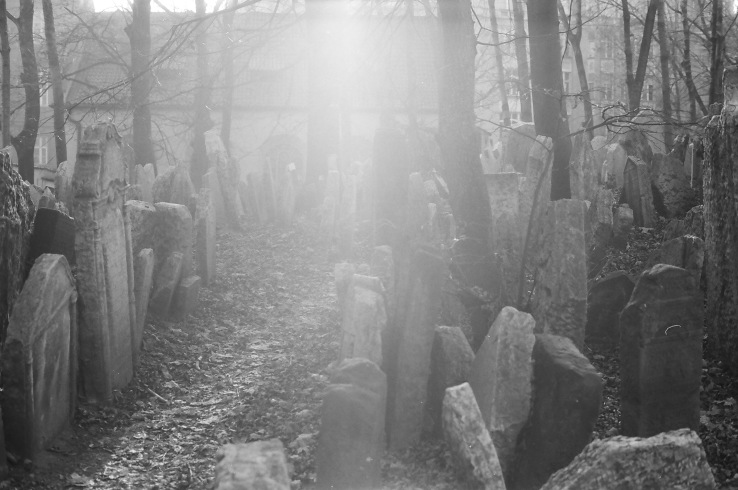
Today, Pinsk is a pretty(ish) town in Belarus, best known for having been downwind of the Chernobyl nuclear reactor disaster. When I think of the Nazi troops surrounding my grandmother’s village, which I do on some days when the wind comes in from the north, and the bone thief reminds me that he is still holding my bones to ransom for another day, it reminds me all too strongly of the villages in Chechnya, and the things that happened there, in our very own century, within my lifetime, at the hands of troops whose alphabet was written by monks and whose literature is adorned by writers from Chekhov to Tolstoy, Dostoyevsky, Sholokhov and Turgenev to my secret favourite, Mikhail Bulgakov.
I felt sure as I lolled on the sofa in the refracted warmth of the Mexican sun this afternoon with Haruki Murakami that he, too, must have read and loved The Master and Margarita, and perhaps even this:
“But would you kindly ponder this question: What would your good do if evil didn’t exist, and what would the earth look like if all the shadows disappeared? After all, shadows are cast by things and people. Here is the shadow of my sword. But shadows also come from trees and living beings. Do you want to strip the earth of all trees and living things just because of your fantasy of enjoying naked light? You’re stupid.”
Murakami’s hero finds himself in the Town that has no shadows. His own shadow, like all the others, is brutally cut off when he first arrives in the Town and left to die by the Gatekeeper, the shadow weakening every day as it lies coughing in the damp dankness of a smelly prison.
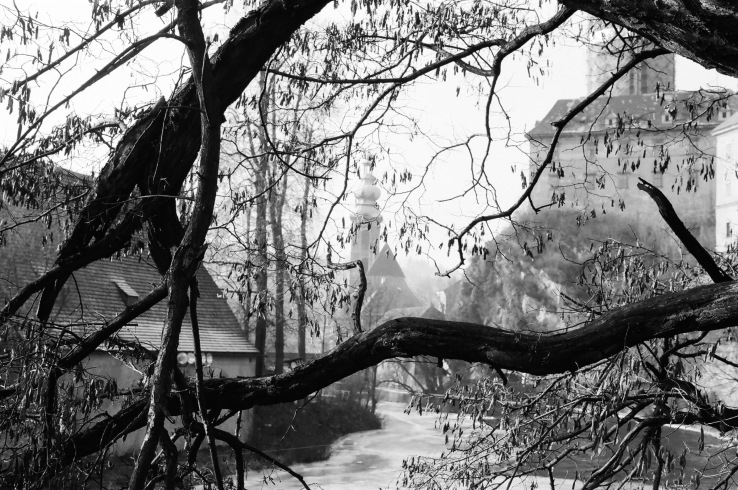
But our hero’s shadow fights back, and decides that he and his human will not suffer the same fate as everybody else. They will defy this dark prognosis and escape. But first the shadow must persuade his owner that escape is desirable from a Town that has no death, no ageing, and no war or pestilence, because nobody there has a mind.
Sometimes, as our hero slowly loses his mind, the Town seems a desirable place to be, not least as he slowly starts to fall in love with the librarian, who furnishes him with the unicorn skulls whose dreams he must read every day. People are content. There is no death or dying. It is a town quite literally without shadows.
Our hero’s shadow, weakening in his cellar prison, must persuade his former owner that he is right, in this urgent speech:
“First about the mind. You tell me there is no fighting or hatred or desire in the Town. That is a beautiful dream, and I do want your happiness. But the absence of fighting or hatred or desire also means the opposites do not exist either. No joy, no communion, no love. Only where there is disillusionment and depression and sorrow does happiness arise; without the despair of loss, there is no hope.”
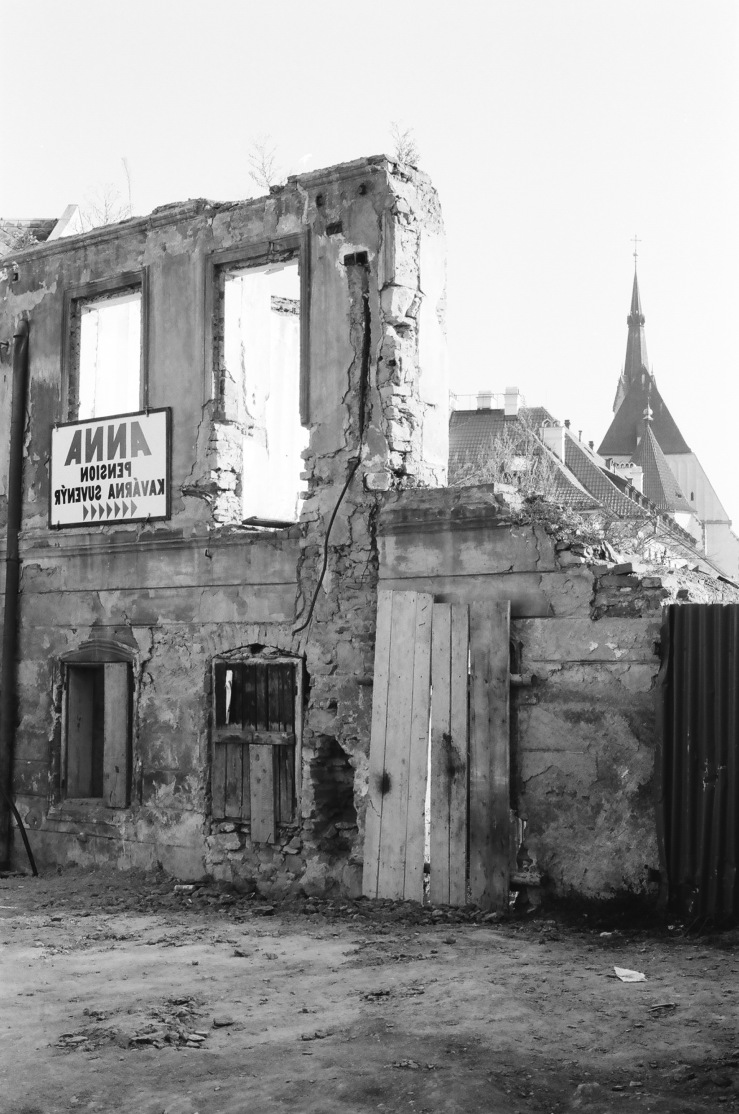
Thinking of the Nazi forces entering Pinsk, or my grandmother’s unspellable village, my mind segues back to Kheda Kungayeva and her fate. It haunts me still some days, even on this sunny afternoon beneath the volcano, though her tormentor, the Russian Colonel, is dead now too, his decaying body perhaps a breeding ground for worms that may already have violated him in similar ways.
I had to cut my Russian lessons short to travel to Chechnya to cover that story, much to the disgust of my Russian teacher, who suspected me of a lack of diligence. She was absolutely right. Though today, I’d rather think about the Cyrillic alphabet slinking off in a huff during my Russian lessons, wiggling like Marilyn Monroe in “Some Like it Hot”, than the realities faced by so many Chechen families in those long years of war that turned their bombed apartment blocks into a frozen Beirut.
Of course,“Some like it Hot”, made in 1959 but set in 1929, remains quite possibly the most perfect film ever made, especially the entrance of Marilyn Monroe and her wiggle as our flawed but sympathetic heroine Sugar Kane Kowalcyk. Tony Curtis and Jack Lemmon, hulking great big men dressed in drag, pretending to be Daphne and Josephine, watch Sugar in awe as she makes her way onto the train. They’re trying to pretend to be female musicians so they can escape from the gangsters they’ve witnessed committing a crime similar to the Saint Valentine’s Day Massacre.
“How’d they do that? It’s like jello on springs”, gasps Jack Lemmon in awe, as he watches Marilyn sashay her way past, while they trip and struggle with their stilettos.
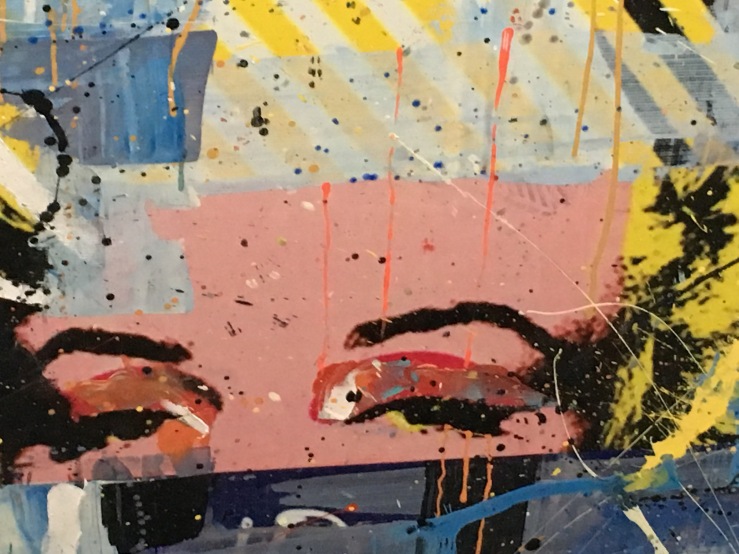
Its director Billy Wilder got out of wartime Europe just in time, too. Born in Austria, he started his screenwriting career in the 1920s. But he soon realised that the rising Nazi party would mean him no good, and moved to Paris, and then by 1933 to Hollywood. And without that serendipity, most of my very favourite films would not have been made.
But am I to be here forever, trapped in the Kingdom of the Sick thanks to the war in my body between immune system and nerves, as Murakami’s hero appears to be trapped in the Town, where people see and value things differently?
Or can I make the choice to defy my fate and start afresh, make a new life, leave my MS behind, however difficult that process is. Perhaps, if all goes well tomorrow when the new stem cells start their work, I can one day begin a new life in the Kingdom of the Well, perhaps initially as a refugee, with permission to remain stamped in my passport to begin with, as my new identity is not quite fixed and may not be certain for several years to come?
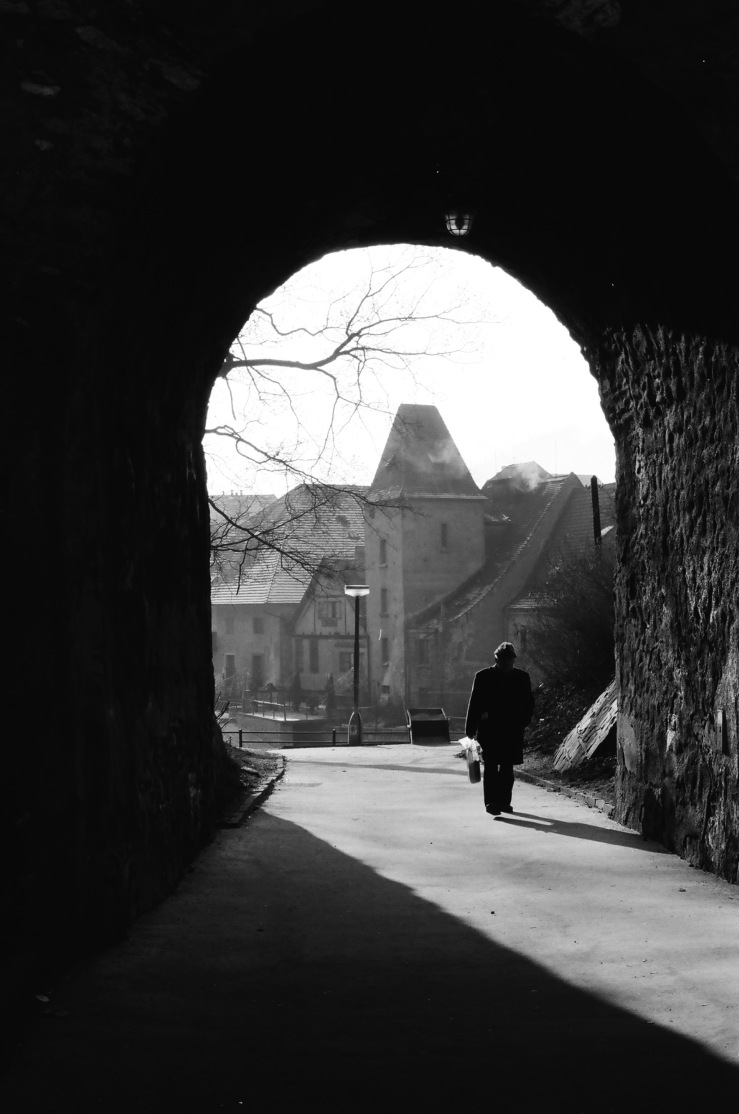
I have learned some things from living with MS. That in the kingdom I still inhabit, a day spent walking without a stick is worth any number of Gucci bags. While a day or even half a day without brain fog is the equivalent to winning the lottery. And a day when the fatigue does not darken your brain and body for most of the day makes you a lottery billionaire. And the rare days when you can feel your fingertips AND your toes is like actually finding and possessing the Holy Grail without having to watch the Da Vinci Code first or read Dan Brown’s dialogue.
I have tried to see the positives in the ‘gift’ of MS, for I am Pollyanna-like in many ways, and ever the optimist. But not in this. In this endeavour, I have failed. So in the end last year, I decided I would have to try to return this MS back to sender, and try HSCT, a stem cell transplant, rather than mutter my insincere thanks and try to hide the unwanted gift, like a box of polonium stacked at the back of my cupboard, as it slowly contaminated every square inch of me and all I possessed, including my mind.
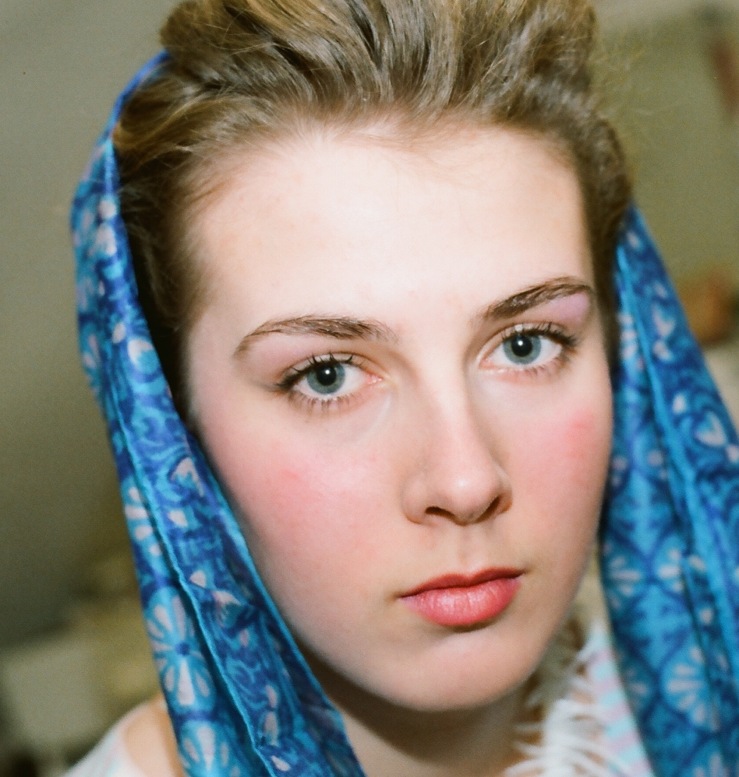
Why did one GP not think my mind was worth saving when I went to ask for help at her surgery so many years ago? When I told her that my mind was fuzzy, clouding over like an English day in May, and that all my energy was gone, as if someone had turned the lights out in my brain, she scoffed. And told me I should do ‘cognitive behavioural therapy’ to deal with what she assumed was a mix of anxiety and hypochondria. Dear Reader, I do not suffer from anxiety and never have, and I say that with no pride. I simply don’t. In normal times, I sleep like a navvy. It’s only the chemo or the drugs that are keeping me awake now. And perhaps the sore bottom.
Later on that same GP prescribed mindfulness, rather than an MRI scan to see what was happening inside my slowly fracturing brain.
As if by lying down, and being mindful of the money she was saving the NHS, I could find my shattered mind again and make it whole. Perhaps by saving the £750 that she would have had to spend on a scan, that GP in some ways saved me from the gift of an earlier diagnosis of MS, that evil spell, but it also kept me from the drugs that might just have helped had I had them sooner.

Gifts should be like the first one that I remember receiving. In Ottowa, on the day that I turned five: on the doorstep, a bright red shiny bicycle from my parents for my birthday. I knew what it was, even when it was wrapped up. It was a hard present to hide.
As I opened it that sunny day (and for once, and one time only, I know the exact date: it was April 1972) my heart almost burst with pride and joy, despite the little white stabilisers fixed to the back wheels that betrayed that I was too wobbly at first to ride this terribly grown-up bike without.
It was that day the sum total of everything I ever wanted in life, because I took for granted, lucky me, parental love, two protective brothers, an au pair I liked a lot, and Chrissy Berry, my brown-eyed pixie-faced Canadian best friend.
My brother Tid, the brother with the endless patience, who could make a doll’s house with his own hands, or fix a bike, or paint the Cutty Sark (not to scale, though), or make an Airfix model fly, helped me to learn to ride my bike.

First, he’d give me a hand up to the saddle, where my short chubby legs would have to stretch to reach the pedals. And then, gently and slowly (and to his credit, even forty five years on, resisting any brotherly temptation to just push hard and see what happened) he’d nudge me on my way as gently as a fisherman of old setting sail from the shelter of a harbour and into the boundless sea.
And wibble away I would, quite often the whole way up the street, until I was so confident that the stabilisers could come off, and I could wobble to wherever I wanted, within reason.
At least, I could until the day – perhaps a year later – that I came off my bike, whether nudged by a car or my own overconfidence, I can’t remember.
But I can still remember the crazy veering of the sky as it turned the wrong way round, to somewhere it really shouldn’t be, blue at the bottom with black at the top, as the hard black tarmac came up to meet my small blonde pigtailed head.
Then, blackness, blessed relief for a while. And finally waking up in my parents’ bed, alive, bruised, with knees and elbows a little battered by the gravel, and unable to see.
All around me a velvety blackness, with only the tiniest suggestion of a glimmer of light to my right, where I knew that the window was.
This was not a comforting darkness. It was the darkness of the monster that lived under my bed and would reach out his hands to grasp my five year old feet if I got up to go to the loo in the night, unless I muttered incantations to keep him away, or took my teddy bear Muschi with me for protection.
I don’t know what the monster under the bed in Ottowa did during the day. Perhaps he slept, or went to terrorise children on the other side of the world. He only came out at night, after Mum had turned off the light, or Dad had finished reading me a bedtime story.
For a day or so, I lay motionless in my parents’ vast bed, as my small battered body recovered. Cups of tea were brought and held up to my lips, and I could hear hushed adult voices, and feel heads poked around doors as I dozed.
Sometimes, I felt Mum’s hand holding mine, squeezing it tight again and again. And then, perhaps on day two or three, the world went purple and was visible again. Thank God, I could see. I wasn’t going to be blind forever.
Canada was a wonderful place to live, in our yellowy-brown two-storey house on Lennox Street, which we decorated with coloured lights around Christmas time, in celebration that lit up the winter darkness. Was it in the district of Richmond? I don’t remember, and it doesn’t matter now – its name is not important; only the essence is.
I saw Lennox Street with a child’s eye view when we moved to this enchanted land from the suburb, or perhaps the town, of Carshalton in Surrey. Carshalton suffered from the comparison. It did not have snow that crisped together crunchily so high in winter that to walk through the latest snowfall to school was to be an Arctic adventurer, battling your way valiantly through the snow and ice that came to above your head, albeit holding on to Delia’s hand for safety.
Delia was our family’s au pair by then, a wonderful English girl who had come with us from Carshalton; sweet-natured, red-haired and freckly, always with a ready smile.
In the back garden we had a climbing frame and a weeping willow that protected us from the fierce summer heat. And perhaps a slide, though that could be wishful thinking. Perhaps I only wanted a slide. No, I can see it now, glinting silver in the summer light of memory.
We had a silver birch tree too, in our front garden, which meant that when my natural grandmother Anna said to me in 1999 that the one thing she was homesick for when she left Poland for Australia was the silver birch, I knew exactly what she meant.
It is a friendly tree, a tree that gives and asks for nothing in return, its bark like the parchment or the palimpsest on which we may choose to write our fate anew, and listen to our shadow when he tells us that it is time to escape from the Kingdom of the Sick – but that we must do it now, today, before it is too late.
As the wind howls around Inspiralta, I wonder if music will help soothe the beast outside and the memories that today I can’t escape. I am in neutropenia still, though perhaps now on the way out.
I haven’t wanted to listen to music in many months. My kaleidoscope brain has been too fractured to take in harmony, and the shrill constant whistle of the tinnitus detracts from any pleasure. But I did bring my iPod with me, more in hope than in expectation. It is now a very old iPod mini, with a cracked screen, attached to a tiny speaker shaped like a small black mushroom. I turn the iPod to shuffle and press play.
Up comes Van Morrison, and Bright Side of the Road. Shuffle likes him, and chooses Did Ye Get Healed. Has my iPod been reading my blog, I wonder? How the hell does it know? If it comes up with Girl at her Volcano by my all-time favourite female singer Rickie Lee Jones (though her debut album, Chuck E’s in Love is far superior) I would not be surprised.
No, it definitely has been reading my blog and looking at the photos too. The next song is: “You’re So Vain” by Carly Simon.
I turn the volume up and enjoy the melodies in a way I haven’t been able to for years, enjoying every beat and turn.
And suddenly the air is filled with one of my favourite songs – Walking in Memphis, by Mark Cohn. The most perfect combination of music and lyrics, about his pilgrimage to Memphis, and to Elvis’s Graceland.
And the best line of all, after he is asked to duet with a famous gospel singer – she says: “Tell me, are you a Christian, child?”
“And I said “Ma’am, I am tonight.”
Many assumed that meant that this song-writing gospel-music-lover must have been born again. But no, he was still Jewish. And a lover of gospel music. Not just the one identity, but both folded into the same person. We are not binary. We do not have to choose between, the either or. We can combine multiple selves in one.
“To me,” Mark Cohn said of his own song, “that line could have only been written by a Jew. It’s such a Jewish line, and I love that.”
The melody is haunting, but it is the words and the sense of place that mean I come back to it time after time since I first heard it many years ago. For it has that sense of an awakening within it, a rebirth after hard times.
As Mark Cohn said of his biggest hit (and very first song), the real visit to Memphis that inspired it was one of those trips where “you’re different when you leave”.
Perhaps this trip too, for me. Tomorrow, my new stem cells should finally have shaken off their hangovers, and get down to work, according to Dr Priesca, a man who knows about blood.
Like any new parent, or week old baby (for in this case, as far as my new blood is concerned I am both parent and child: both my own progenitor and the beneficiary of my own beneficence, not excluding the benevolence of God, nature and Clinica Ruiz, and perhaps the local plumed serpent God too, as I’d hate to upset him.)
Suddenly, I am swept without warning back to my earlier pleasure in music. For the first time in a long time, its notes don’t make me cry, or overwhelm me with emotion. It is just… music. Yes, some of it makes me feel happy, and some of it sad. But none of it makes me want to, need to, have to curl up and sob helplessly for no reason, apart perhaps from the lesions on my brain.
Whatever this treatment has done so far, this has been a magical afternoon, even if it turns out to be no longer than Oliver Sacks’s Awakenings. Although I am hoping for a longer stint of recovery than they were blessed with.
Sacks is my all-time favourite neurologist, another son of Jewish immigrants, who became known as the poet laureate of medicine for his accessible, brilliant neurological case studies: of people whom he never, ever forgot were also first and foremost human beings.
For all too brief a time in the 1960s, he helped re-awaken from their slumbers the victims of the 1920s epidemic of encephalitis lethargica with the new drug L-DOPA. Sacks himself died in 2015, though not before he had written at least 15 books, and helped popularise the understanding of the marvels of the brain.
Perhaps his sympathy for his patients was partly thanks to his own prosopagnosia, or “face blindness”, which may have led to his own shyness, even though he didn’t recognise the condition until middle age.
It meant that he could not recognize people (or even sometimes his own reflection in a mirror) when he looked at a face, a condition that’s believed to result from both genetics and maybe a lesion in a part of the brain structure called the fusiform gyrus, also believed to be related to the condition synæsthesia, in which people may perceive a letter or number to have a specific colour. Or, for others, a number or day of the week might have a precise location in space, as if the sensory wires of the brain had become crossed.
Oliver Sacks believed that the brain was a thing of wonder, able to heal itself and change far more than many of his contemporaries (or indeed his successors) in the neurological world thought. I too, believe that given this chance with my new stem cells and HSCT, the modern miracle treatment, my brain can and will heal itself. As long as those hungover stem cells get a move on tomorrow and wake up.
It is late, and Joy is trying to go to sleep, but restless, and wondering when I am going to go to bed, ahead of the morning’s blood test and filgrastim injection. So I leave you with this thought.
The 1976 edition of Oliver Sack’s book Awakenings is dedicated to the memory of the poet W. H. Auden, with an extract from Auden’s poem The Art of Healing, written in memoriam for his friend who was a doctor, or perhaps his doctor, who was his friend, David Protetch MD, and the full poem reads as follows:
Most patients believe
dying is something they do,
not their physician,
that white-coated sage,
never to be imagined
naked or married.
Begotten by one,
I should know better. ‘Healing,’
Papa would tell me,
‘is not a science,
but the intuitive art
of wooing Nature.
Plants, beasts, may react
according to the common
whim of their species,
but all humans have
prejudices of their own
which can’t be foreseen.
To some, ill-health is
a way to be important,
others are stoics,
a few fanatics,
who won’t feel happy until
they are cut open.’
Warned by him to shun
the sadist, the nod-crafty,
and the fee-conscious,
I knew when we met,
I had found a consultant
who thought as he did,
yourself a victim
of medical engineers
and their arrogance,
when they atom-bombed
your sick pituitary
and over-killed it.
‘Every sickness
is a musical problem,’
so said Novalis,
‘and every cure
a musical solution’:
You knew that also.
Not that in my case
you heard any shattering
discords to resolve:
to date my organs
still seem pretty sure of their
self-identity.
For my small ailments
you, who were mortally sick,
prescribed with success:
my major vices,
my mad addictions, you left
to my own conscience.
Was it your very
predicament that made me
sure I could trust you,
if I were dying,
to say so, not insult me
with soothing fictions?
Must diabetics
all contend with a nisus
to self-destruction?
One day you told me:
‘It is only bad temper
that keeps me going.’
But neither anger
nor lust are omnipotent,
nor should we even
want our friends to be
superhuman. Dear David,
dead one, rest in peace,
having been what all
doctors should be, but few are,
and, even when most
difficult, condign
of our biased affection
and objective praise.
If I can find a doctor like that (I hope my part-time and very lovely GP will be there on my return, for she is like that doctor) to supervise my aftercare, and a haematologist who can give me the Rituximab and white blood cell count interpretation that I shall need on return home, then these new stem cells will be lucky indeed.
As I go to bed tonight, I shall ponder the beauty of sleep, and hope that I am tired enough to sleep through to sunrise at least, even though for much of the day I did lie as idle as a painted ship upon a painted ocean.
Samuel Taylor Coleridge, in his Rime of the Ancient Mariner, summed up my hopes for tonight.
Oh sleep! it is a gentle thing,
Beloved from pole to pole!
To Mary Queen the praise be given!
She sent the gentle sleep from Heaven,
That slid into my soul.
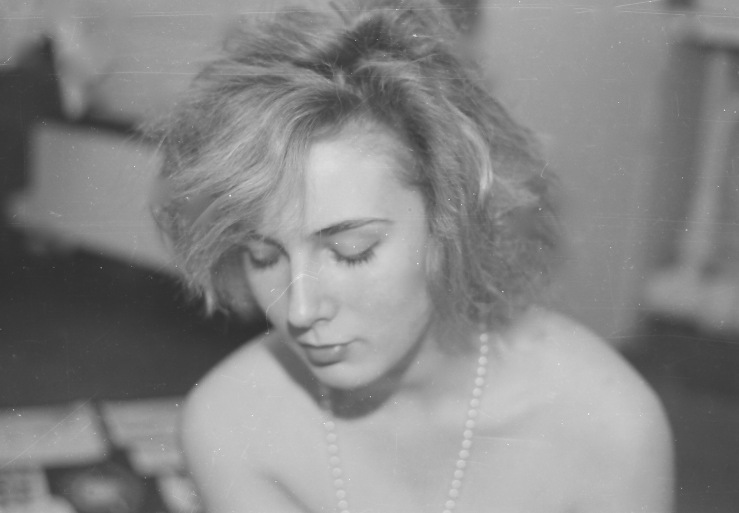
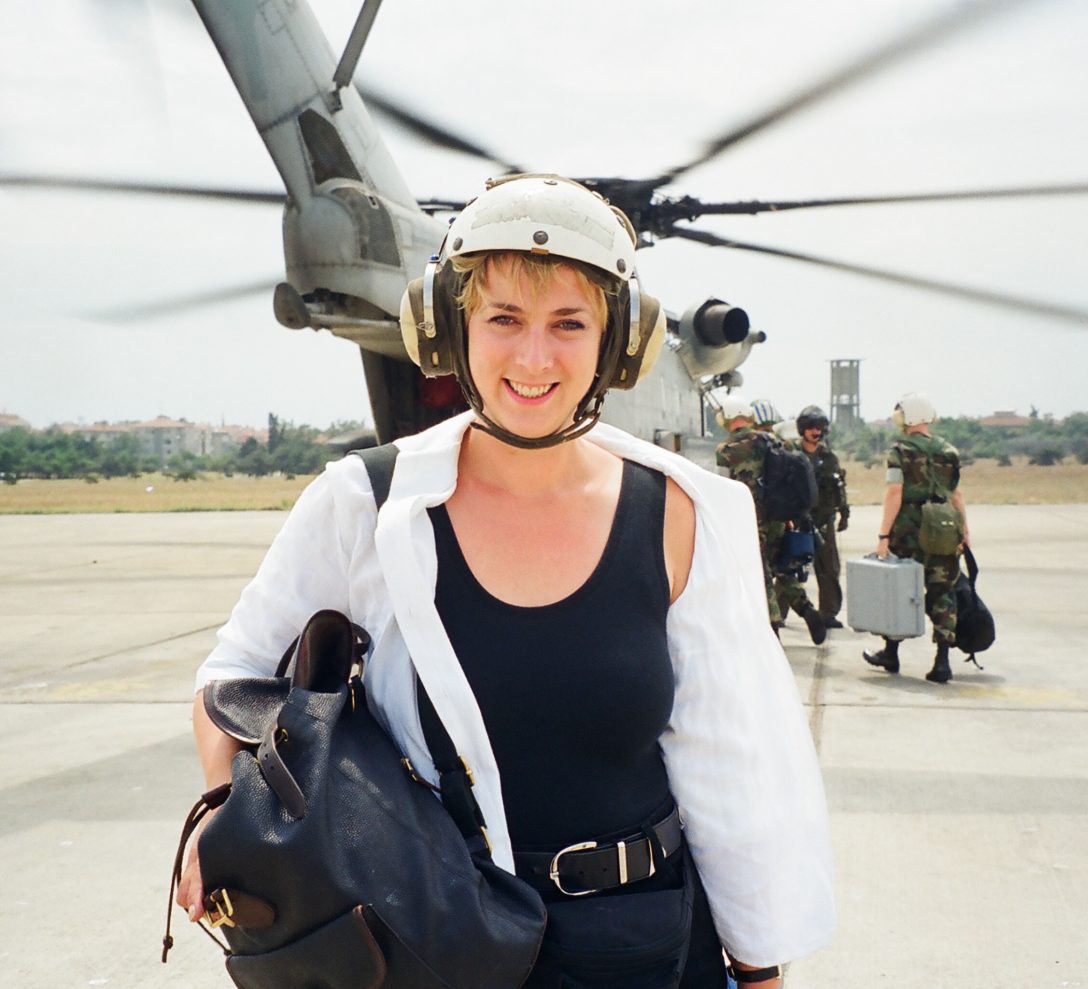
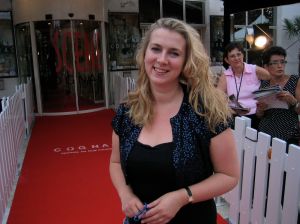
You have your maternal grandmother’s eyes.
LikeLike
🙂 Thank you!! She had lovely eyes, and a wonderful smile. I met her for the first time when I was 23 and she was 60 is, and she was one of the loveliest people I have ever known.
LikeLike
Your tale is moving, beautifully written, an insight Caroline. Keep writing. Charles
LikeLike